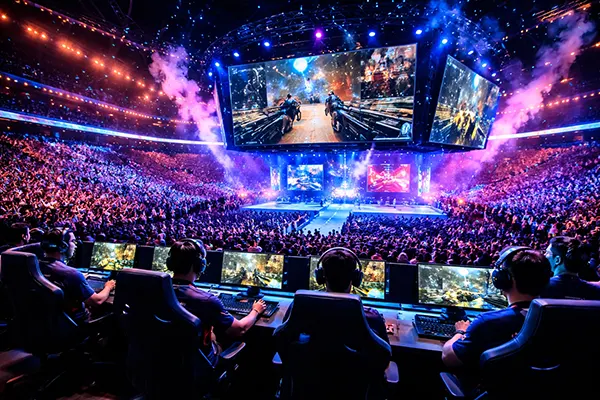Player Performance Betting: A New Trend in Esports

Esports betting continues to evolve rapidly, and one of the most prominent trends emerging in 2025 is betting on individual player performance. No longer limited to team outcomes, esports fans can now bet on how specific players perform during matches — similar to traditional fantasy sports or prop bets in football. This approach is reshaping the betting landscape, providing both bookmakers and bettors with new, exciting opportunities. But what exactly makes this trend so relevant now?
Why Player Performance Betting is Gaining Popularity
Player performance betting has become a focal point due to the growing sophistication of esports analytics. Today, match data includes not just team statistics but granular insights like kill-to-death ratios, average damage, objective control, and even accuracy percentages for each individual player. This detailed data makes it possible to set more accurate betting odds for specific player outcomes, such as “over/under 20 kills” or “first blood” scenarios.
In games like CS2, League of Legends, or Valorant, fans have favourite players whose performance they track closely. Player-centric bets allow punters to place wagers based on an individual’s skills rather than the team’s overall strength. This personalisation appeals to fans who may support a team but also admire standout players across different rosters.
Moreover, the rise of streaming platforms and social media has elevated player brands. Star players now have followings that rival those of entire teams, and fans are more engaged than ever. This higher engagement translates into increased interest in how those players perform — not just whether their team wins or loses.
Impact on Bookmakers and Bettors
Bookmakers are now investing heavily in live player statistics and AI-driven odds modelling. This enables real-time updates and micro-betting options — such as predicting the next kill or assist by a specific player. These offerings increase the frequency and volume of bets during matches, maximising engagement.
For bettors, the appeal lies in strategic depth. Rather than simply betting on a team to win, they can evaluate player performance trends, past head-to-head results, and game maps to build a more nuanced betting profile. This appeals to experienced punters looking for an analytical edge.
However, this trend also introduces new risks. Betting on individuals often requires deeper knowledge and more frequent monitoring, which may increase the risk of over-betting or impulsive decisions. This places greater responsibility on bookmakers to promote responsible gambling practices tailored to these bet types.
Games Leading the Trend in 2025
Several esports titles have embraced player performance betting due to their structure and audience engagement. Counter-Strike 2 (CS2), for instance, remains the most bet-on title in this category. Its clear metrics — kills, assists, deaths, and MVPs — allow easy quantification of player impact. Additionally, the game’s round-based format makes it suitable for real-time, player-based prop betting.
League of Legends and Dota 2 also offer rich opportunities. While more complex due to their team-oriented nature, they provide valuable data on kills, deaths, assists, warding, and gold earned. In high-stakes tournaments like Worlds or The International, bets on specific mid-laners or carries attract substantial attention.
Valorant is rapidly climbing the ranks as a betting-friendly title. Its mix of CS2-style shooting with ability-based play opens the door to hybrid player performance metrics, such as ability effectiveness, headshot percentage, or clutch play odds. Esports books are adapting quickly, expanding markets to meet demand in this segment.
Technology Behind the Betting Platforms
The explosion in player performance betting is made possible by advancements in data scraping and real-time API integration. Esports events today are streamed with integrated telemetry, meaning that every action a player makes can be logged, tracked, and monetised by sportsbooks.
AI and machine learning also play a major role. Predictive models trained on past performances help bookmakers offer dynamic odds with high accuracy. These models consider opponent statistics, player fatigue, map selection, and even psychological variables based on public interviews or recent tweets.
Furthermore, user interfaces have improved drastically. Mobile betting apps now allow fans to receive instant notifications on live player achievements, triggering in-app bet prompts. Combined with gamification elements like leaderboards and betting streaks, the experience has become both entertaining and competitive.

Responsible Gambling and Regulatory Perspectives
As with all innovations in the betting space, player performance wagering must evolve within a responsible and regulated framework. Given the speed and volume of bets this trend allows, regulators in countries such as the UK, Sweden, and Germany are monitoring closely to ensure transparency and protect young bettors.
Licenced operators are now required to implement features such as bet limits per player market, instant self-exclusion, and AI-powered risk alerts. These tools help flag excessive betting patterns, especially among players new to these more granular markets.
Meanwhile, integrity remains a concern. Betting on specific outcomes raises the risk of match-fixing or player bribery, particularly in tier-2 leagues with lower salaries. Tournament organisers, betting firms, and esports federations are working together to introduce blockchain-based verification systems and enforce mandatory reporting of suspicious activity.
What Lies Ahead for Player-Based Betting
The player performance betting trend shows no signs of slowing down. With global esports revenues projected to surpass $2.5 billion in 2025 and viewership rivaling mainstream sports, the demand for player-specific interaction will only increase.
Expect more advanced betting options in the near future — like fantasy-style betting pools based solely on player scores, and AI-based recommendation engines that suggest bets based on your past preferences and team loyalty. Additionally, integrations with wearables and biometric data (e.g. heart rate sensors) could eventually become part of high-stakes live bets.
Ultimately, this evolution enhances the relationship between fans and the stars they admire, giving betting a more personal, dynamic, and engaging touch. However, it also demands greater education, transparency, and oversight to ensure that the excitement it brings is matched by responsibility and fairness.




